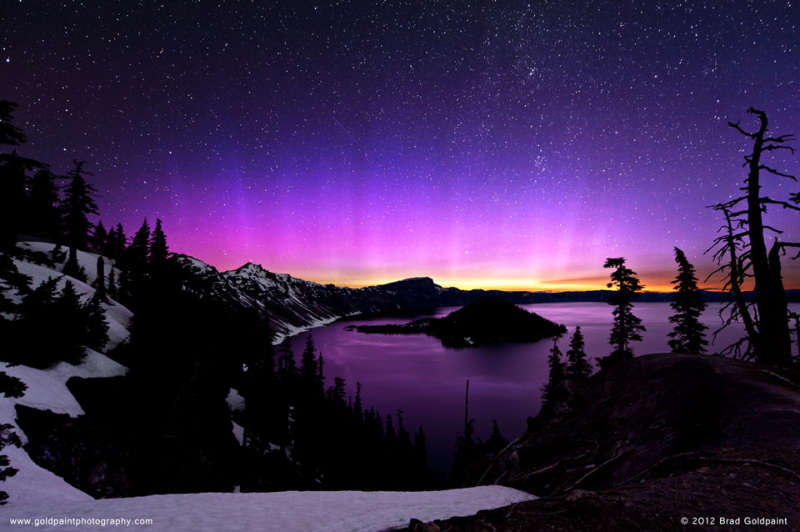 |
Астронет: Астрономическая картинка дня Розовое полярное сияние над Кратерным озером http://www.astronet.ru/db/msg/1268015/eng |
Credit & Copyright: Brad Goldpaint
(Goldpaint Photography)
Explanation:
Why is this aurora strikingly pink?
When photographing picturesque
Crater Lake in
Oregon,
USA last month, the background sky lit up with
auroras
of unusual colors.
Although much is known about the
physical mechanisms
that create auroras, accurately predicting the occurrence and colors of auroras remains
a topic of investigation.
Typically, it is known, the lowest
auroras appear green.
These
occur at about 100 kilometers high and involve atmospheric
oxygen atoms excited by
fast moving plasma from
space.
The next highest auroras -- at about 200 kilometers up --
appear red, and are also emitted by resettling atmospheric
oxygen.
Some of the highest auroras visible -- as high as 500 kilometers up --
appear blue, and are
caused by sunlight-scattering nitrogen ions.
When looking from the ground
through different layers of distant auroras,
their colors can combine to produce unique and spectacular hues,
in this case rare pink hues seen above.
As Solar Maximum nears over the next two years,
particle explosions
from the Sun are sure to continue and likely to create even more
memorable nighttime displays.
Students: Browse a free
online astronomy course.
Authors & editors:
Robert Nemiroff
(MTU) &
Jerry Bonnell
(USRA)
NASA Web Site Statements, Warnings,
and Disclaimers
NASA Official: Jay Norris.
Specific
rights apply.
A service of:
LHEA at
NASA /
GSFC
& Michigan Tech. U.
